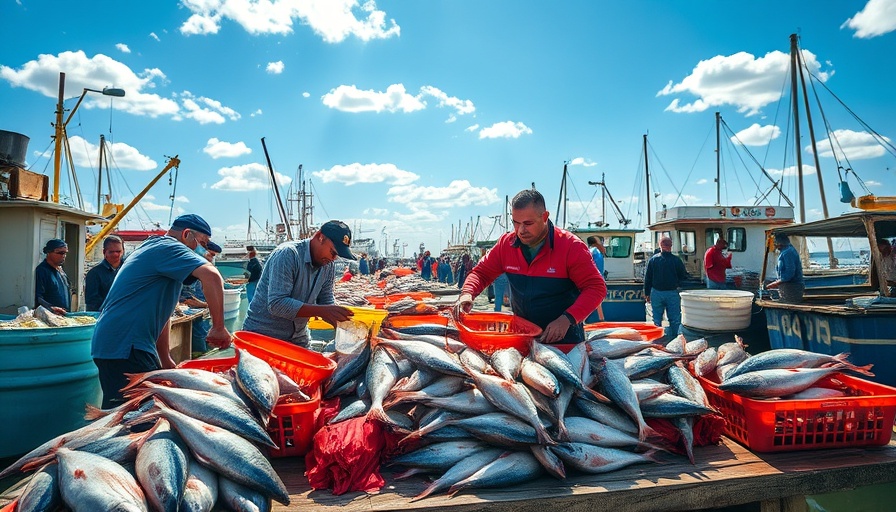
The Alarming Trend of Ocean Acidification: Why It Matters
Rising ocean acidification is becoming a pressing environmental issue that calls for immediate attention and action. As atmospheric carbon dioxide levels have surged due to human activities, particularly fossil fuel combustion, oceans have absorbed vast amounts of this CO2. Since the beginning of the industrial revolution, the acidity of surface ocean waters has increased by 26%. This process threatens marine ecosystems that are foundational to life on Earth, making it increasingly important for eco-friendly advocates to engage in discussions around marine protection and climate action.
Understanding the Effects on Marine Life
Ocean acidification poses multiple risks to marine organisms, particularly those that rely on calcium carbonate for their shells, such as mollusks and corals. The reduction in carbonate ions due to acidic conditions makes it more difficult for these species to build and maintain their shells, which are vital for their survival. With scientists predicting that continued CO2 emissions could result in a 170% increase in acidity by the end of the century, the implications for biodiversity and marine food webs are staggering.
Worsening Climate Change and Its Impact
The world is at a perilous crossroads where ocean health is interlinked with climate change. Issues like marine heatwaves and oxygen depletion exacerbate the dangers posed by acidification, creating a perfect storm of crises threatening the livelihoods reliant on these marine ecosystems. Efforts to protect the ocean must go hand-in-hand with concerted actions to cut greenhouse gas emissions, echoing the sentiments of oceanographers like Helen Findlay and Johan Rockström, who advocate for rapid climate action.
Global Responses and Future Predictions
Reactions to the latest findings about ocean acidification include calls for innovative environmental policies and enhanced marine conservation efforts. Studies highlight that four oceans have now crossed a critical threshold for acidification, emphasizing the immediate need for marine protection as part of broader climate strategies. There is a growing consensus that we must advance sustainability initiatives that prioritize biodiversity and marine health, ensuring the capability of the oceans to withstand these pressures.
Action Steps for Eco-Friendly Practices
As individuals, communities, and businesses, there are actionable insights we can adopt to combat this impending crisis. Transitioning to organic products, practicing sustainable fishing, and reducing our carbon footprint can contribute significantly to decreasing carbon emissions. The promotion of renewable energy sources, such as solar power, and a shift towards a circular economy can help mitigate the impacts of climate change and ocean acidification.
The Role of Community Engagement
Community efforts have a powerful role to play in combating ocean acidification. From supporting local initiatives that promote eco-friendly living to participating in beach clean-up efforts, we can all contribute towards the health of our oceans. Furthermore, supporting legislation aimed at reducing pollution and promoting green practices is essential for sustainable progress.
Conclusion: The Importance of Urgency
As we face the increasingly evident challenges arising from ocean acidification, the mantra of 'go green' becomes all the more critical. We must harness collective action to address the multi-faceted threats our oceans are facing. The clock is ticking, and proactive measures must be prioritized now more than ever to ensure the sustainability of our marine environments for generations to come. Together, whether adopting green technology or engaging in sustainable agriculture, we can push for real change.
 Add Row
Add Row  Add
Add 



Write A Comment